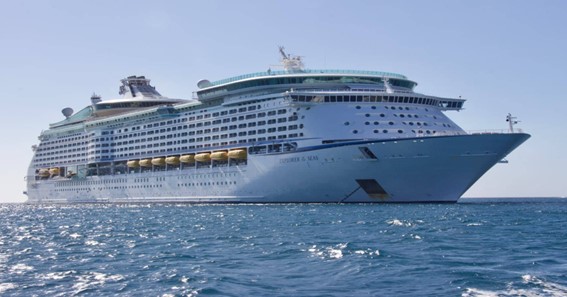Cruise Ships are a fun and safe way to go for luxurious vacations and are perfect gateways to exotic destinations. With the numerous onboard activities that create a resort-like experience, it’s almost hard to get bored. However, just like on land, crimes happen at sea too. These crimes range from minor ones like theft to serious ones like murder.
Dealing with sea crimes often depends on factors such as the level of the offense committed and the severity of harm sustained. Keep reading to get more info on the common Cruise crimes and how Cruise Ships deal with these crimes.
Common Crimes That Happen on a Cruise Ship
Intoxication, petty theft, and disorderly conduct are the most common and minor types of offense that happen on a Cruise Ship. These crimes are rarely prosecuted and are mostly handled by the ship’s staff to prevent escalation.
More serious crimes such as sexual assaults, robbery, physical assault, homicide, missing passengers, etc, are also often reported on a cruise ship, with a sexual assault reported as the most common serious crime constituting about 70% of all cruise ship crimes.
Robbery or theft of property/money above $10,000 is considered the second most common serious crime that occurs on cruise ships, while physical assault has lesser occurrences.
How Do Cruise Ships Deal With Crimes?
Because there are no law enforcement agencies on cruise ships, criminal monitoring activities can be difficult, especially when the perpetrators of the crime work together with the crew members or other passengers. However, Cruise ships often have security personnel aboard who ensure the safety of the passengers.
In the case of any crime, the security personnel is usually the first respondent. They are tasked with investigating the crime while still ensuring that the rest of the passengers are kept safe from further harm until the ship gets to the nearest port, where the crime is reported to law enforcement agencies.
Click here – What are Delta 9 Gummies? How to Try Delta 9 THC for the First Time?
Determining The Jurisdiction Over the Crime
Deciding the Jurisdiction for sea crimes can be tricky. Several factors, such as the nationality of the perpetrator or victim, the location of the vessel when the crime happened, point of embarkation and debarkation, nationality of the vessel, etc, affect the Jurisdiction.
According to the United Nations Convention on the Law of the Sea, countries have jurisdiction over crimes that are committed within twelve nautical miles of their shore. Beyond that limit, the jurisdiction over the crime falls under the law of the country where the ship was registered.
Should the crime occur on open waters, the ship’s captain can either decide to stop the ship at the nearest port without minding if it is in the ship’s schedule or detain the passengers till the next scheduled stop. In this case, the port authorities would handle the jurisdiction.
In the case where the perpetrator or victim of the crime is a citizen of the U.S or the ship sails from/to the U.S port, the FBI usually handles the jurisdiction over the crime. In most cases, the FBI may be unable to commence the investigation until the ship returns, making it hard to preserve the evidence.
What to Do If You Are a Victim of a Cruise Crime
If you happen to be a victim of a crime on a Cruise ship, the first step to take is to report it to the ship’s security personnel. In the case of a sexual assault or bodily injury, you can request medical assistance from the medical personnel onboard.
The CVSSA affords victims of cruise crimes certain rights, such as the right to confidentiality, the right to receive a forensic exam for sexual assault onboard, and the right to security aids. This is to ensure that they walk through the entire process of reporting the crime smoothly.
Also, it is advisable to collect and keep every piece of evidence, such as photos and items relating to the crime, including written statements made by witnesses.
If you happen to be the victim of a Cruise crime as a U.S. citizen on board a foreign ship, the constitution and federal law provide you with additional rights beyond the foreign laws, which include seeking assistance from the U.S. law enforcement agency, receiving assistance from other international law enforcement agencies that are involved in the investigation, and seeking assistance from the U.S. courts for crimes committed abroad.
Although sea crimes are not always frequent, never hesitate to report one as soon as it is suspected. This will ensure that all evidence is obtained promptly and efficiently and also help the appropriate authorities to deal with the crime.
Click here – How To Resurface A Concrete Pool Deck






